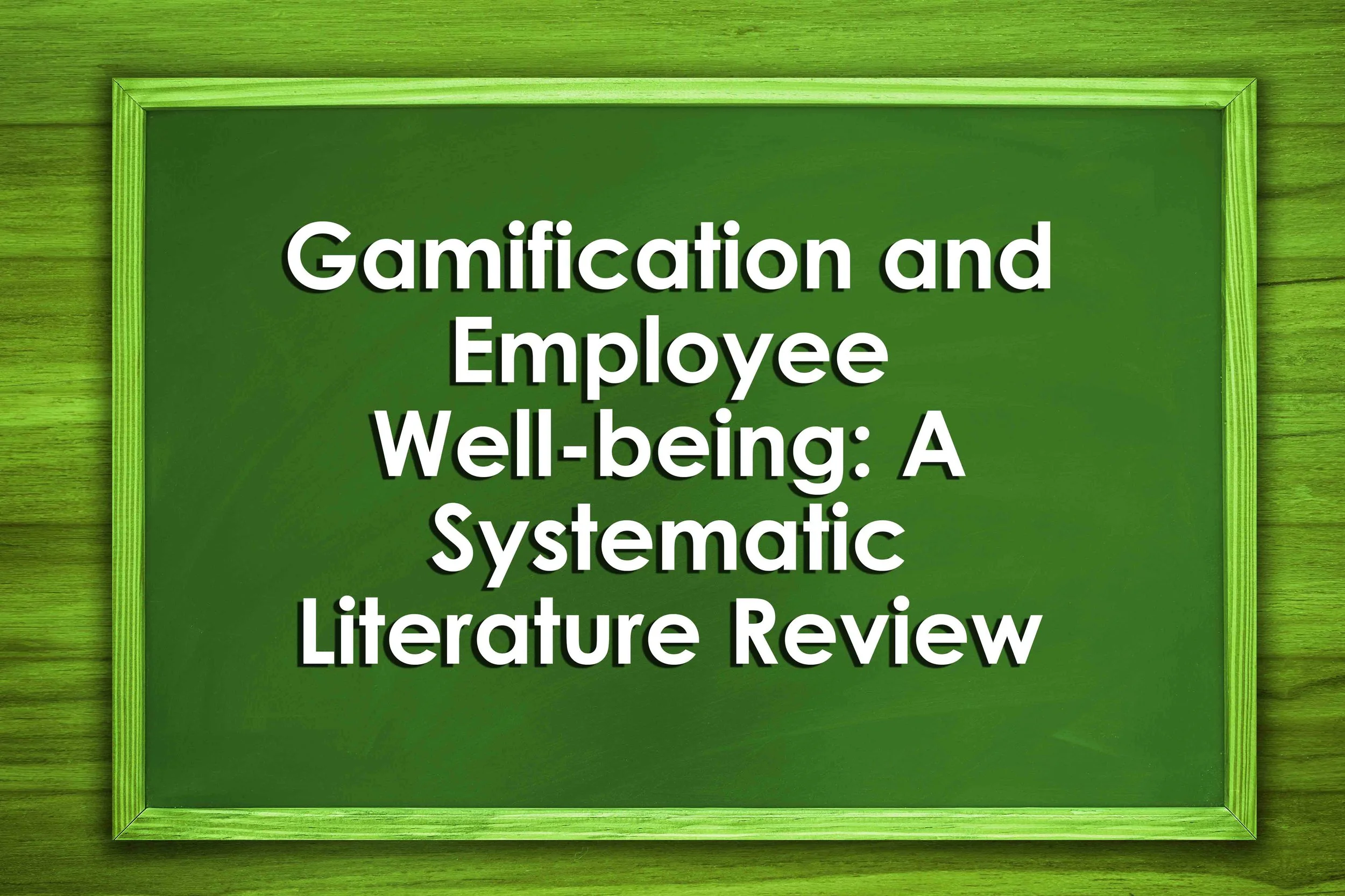Gamification and Employee Well-being: A Systematic Literature Review
Gamification and Employee Well-being: A Systematic Literature Review
Gamification and Employee Well-being: A Systematic Literature Review
Sara Lehtoranta, Nannan Xi, Juho Hamari
Abstract
"As the field of game and gamification research develops, gamification has been empirically and practically examined as one of the effective approaches to engage users by driving motivations and providing game-like experiences. Therefore, an increasing number of companies and organizations are using gamification to improve organizational management performance such as work productivity and satisfaction, which are largely determined by employee well-being and capacity to cope and adapt to changing and challenging environments. However, there has been a dearth in a holistic and comprehensive understanding of the effect of gamification on well-being in organizational management and within the literature pertaining to employees. Under the guidance of TCCM (Theory, Context, Characteristics, Methodology) framework, this study conducts a systematic literature review of 30 empirical studies related to gamification and employee well-being to address questions including what theories and methods have been adopted, what kinds of gamification forms and elements have been investigated across different industries, companies, and organizations, and what effect gamification can bring to employee well-being. Four different future agendas are further proposed based on the review."
Reference
Lehtoranta, S., Xi, N., & Hamari, J. (n.d.). Gamification and employee well‐being: A systematic literature review. Retrieved from https://scholarspace.manoa.hawaii.edu/items/7cc5ce9a-9801-4521-9814-6b0f2373dc6b
Keywords
Game, Health, Human resource

